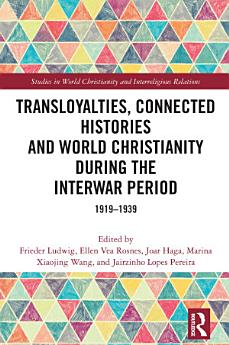Transloyalties, Connected Histories and World Christianity during the Interwar Period: 1919-1939
About this ebook
Traditionally, the United States, Germany, and Scandinavia had been identified as the three centers of Lutheranism. However, while the structures in these centers were well established and “World Lutheranism” was something “out there,” with limited impact back home, negotiation processes on “Lutheran identity” were crucial in contexts where new Lutheran churches emerged. Asian and African church leaders operated in a new context of loyalties: They pushed for cooperation, and they often interacted with mission organizations from all three centers, and also with other religions, traditional cultures, and political movements. Therefore, it is significant what happened, for instance, in the Lutheran Church of China or at Umphumulo in South Africa.
Including theoretical reflections and case studies, this volume is valuable reading for scholars of the history of World Christianity.
About the author
Frieder Ludwig is Professor of Global Studies and Religion in the Faculty of Theology and Social Sciences at VID Specialized University in Stavanger, Norway.
Ellen Vea Rosnes is Professor of Intercultural Communication and Global Studies in the Faculty of Theology and Social Sciences at VID Specialized University in Stavanger, Norway.
Joar Haga is Professor of Church History in the Faculty of Theology and Social Sciences at VID Specialized University in Stavanger, Norway.
Marina Xiaojing Wang is a post-doctoral research fellow in the Centre of Mission and Global Studies (now the Centre of the Study of World Christianity and Religion) at VID Specialized University in Stavanger, Norway (2020–2023).
Jairzinho Lopes Pereira is a post-doctoral research fellow in the Centre of Mission and Global Studies (now the Centre of the Study of World Christianity and Religion) at VID Specialized University in Stavanger, Norway (2020–2023).




